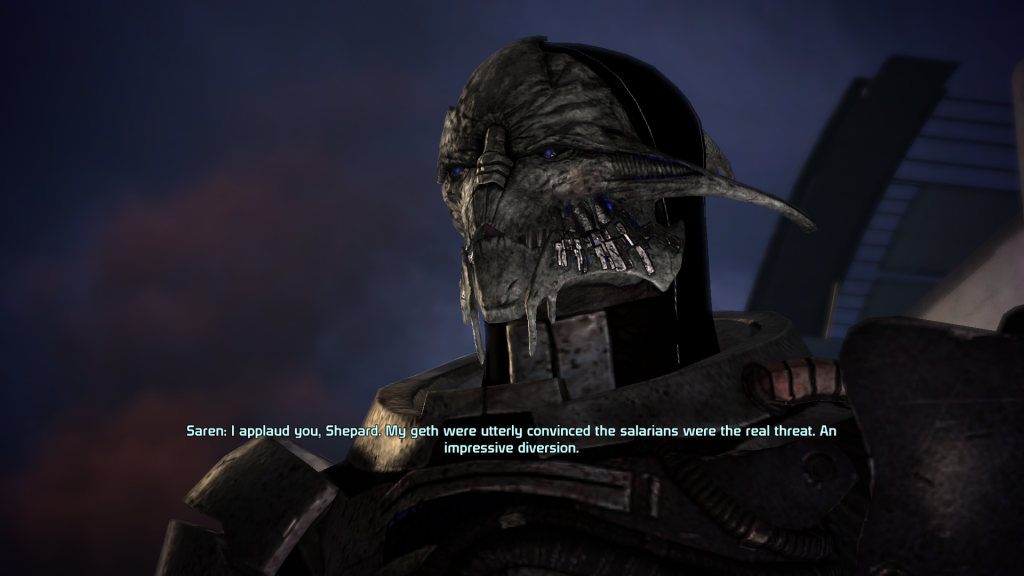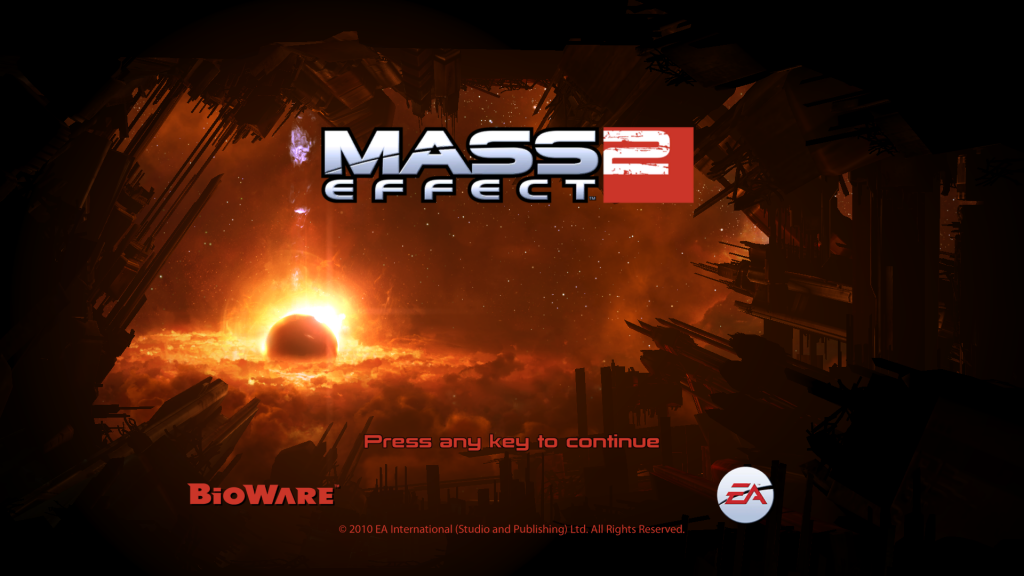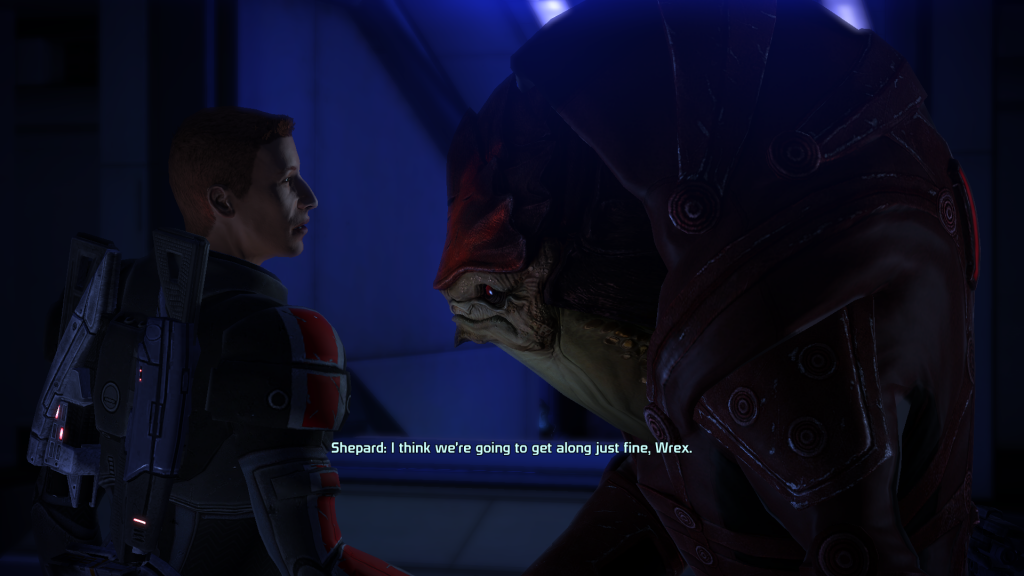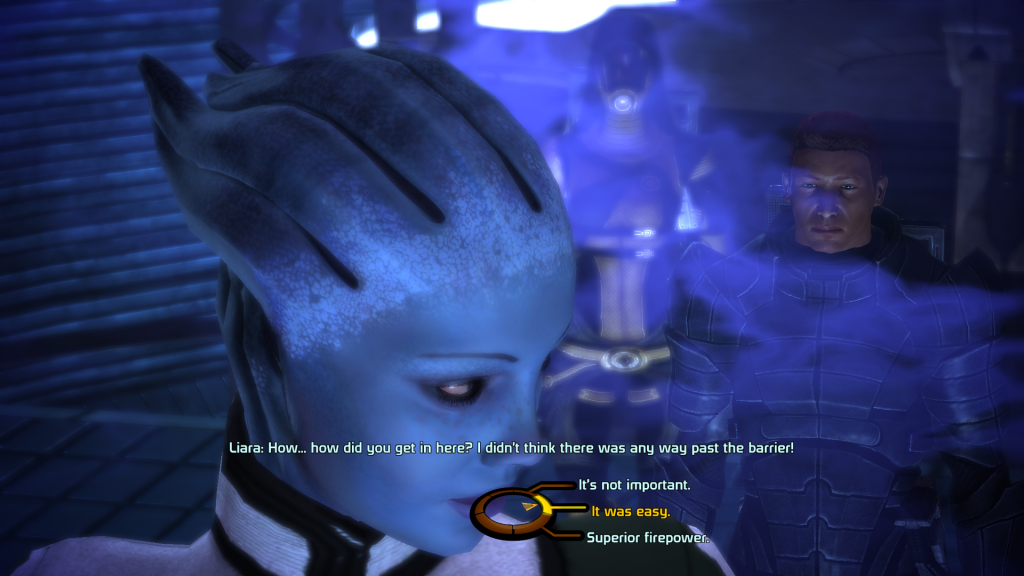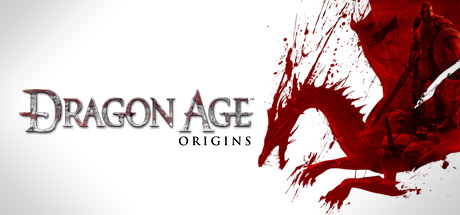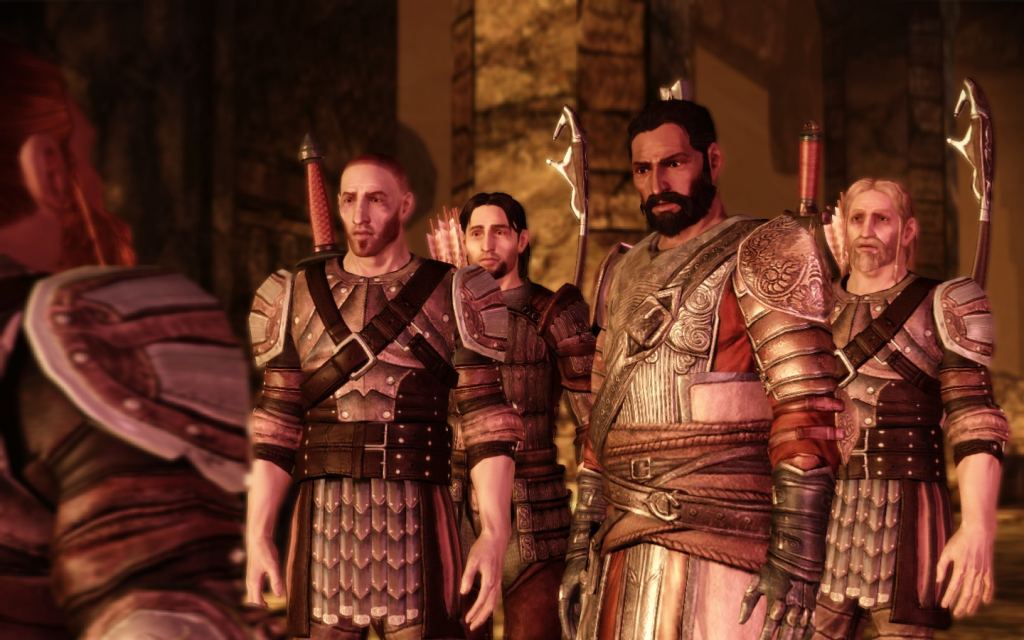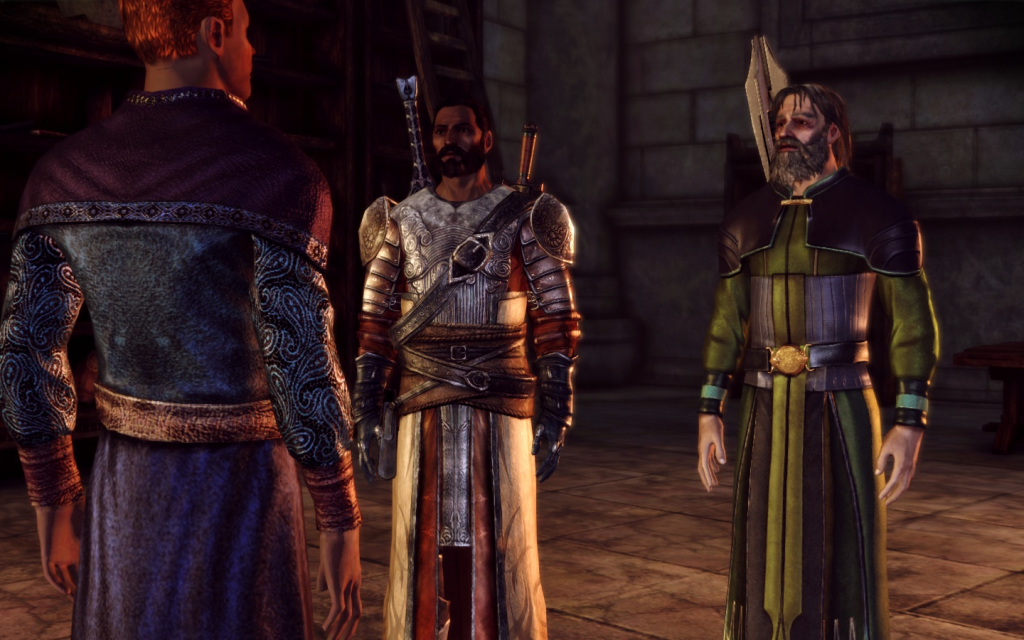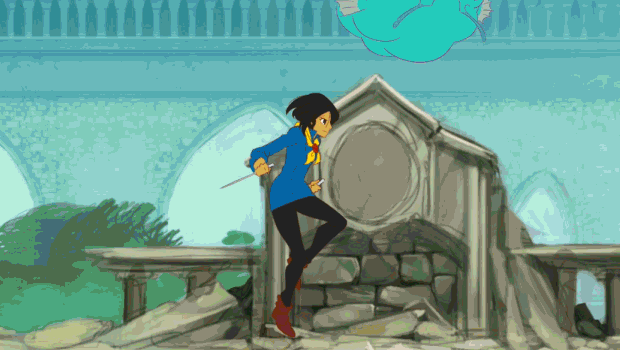Blaugust Post #16
First things first, this post will contain extremely minor spoilers for Mass Effect 2, and large spoilers for Mass Effect 1. ME1 came out 8 years ago, so I’m not exactly going to step lightly, this warning is all you get.
Yesterday I beat Mass Effect 1. If you know what you’re doing, it’s about 15-20 hours long, depending on how many elevators you take and how many sidequests you do. (If you want one of the squadmember achievements or the completionist achievement, expect to extend this to 30+.) I like it, but it’s really my least favorite of the three. One of the major reasons for this is the way powers work in Mass Effect 1: Each power has an independent cooldown ranging from 30 seconds to multiple minutes. Mass Effect 2 dramatically reduced the cooldown on individual powers, most of them are under 10 seconds, but all powers now have a shared cooldown. For power-spamming classes like Adepts or Engineers, this changes how they play dramatically. (It does decrease those classes alpha-striking potential, however.)
On the other hand, Saren is a better villain than anything in the later games, although Harbinger’s taunting certainly makes an impression in ME2. Even though he’s under control of the real big bad (Sovereign), he provides a face to what you’re searching for. He’s even a moderately difficult boss fight on Virmire, although I’ve never fought him in the citadel. (I have no idea what the Charm/Intimidate Threshold for skipping that encounter is. Since it’s at the end of the game, I’ve never been without at least one of them at 10.)
New Game++
So this brings me to Mass Effect 2. Normally, your choices in the game allow you to pick up select powers from your squad for your own, whether this really makes sense or not. (It doesn’t make much sense for a non-biotic to have Slam, for instance.) One of the bonuses on starting a new game is immediate access to one of these powers of your choice at the start of the game. It’s my personal opinion that some of them aren’t balanced for this, but it’s kind of a nice bonus for repeat playthroughs. Id’ completely forgotten about this, and now I have an engineer with Shredder Ammo, which does a large amount of bonus damage against targets with no armor/shields. Engineers specialize in stripping armor and shields, so I suspect this will go pretty well.

